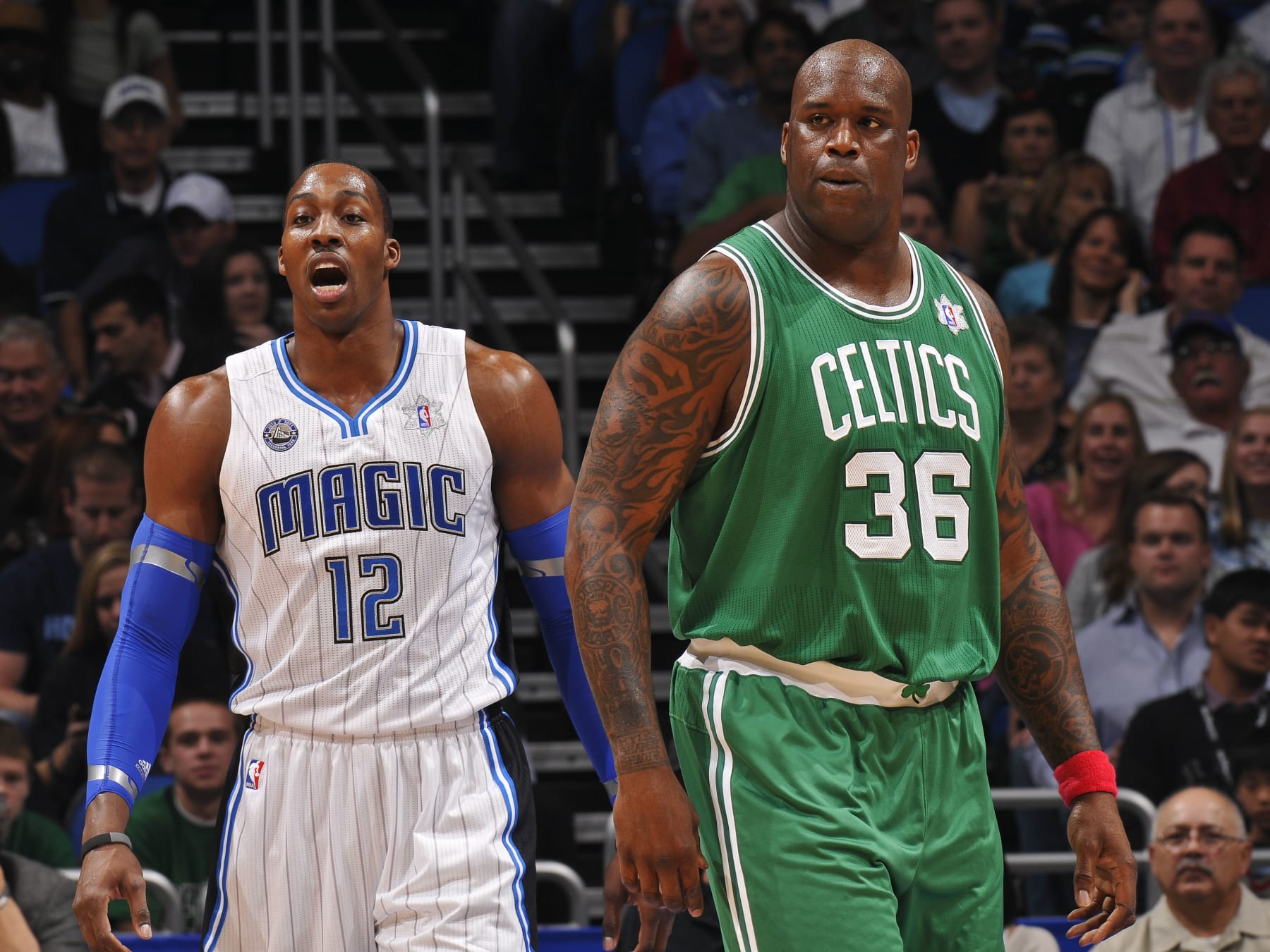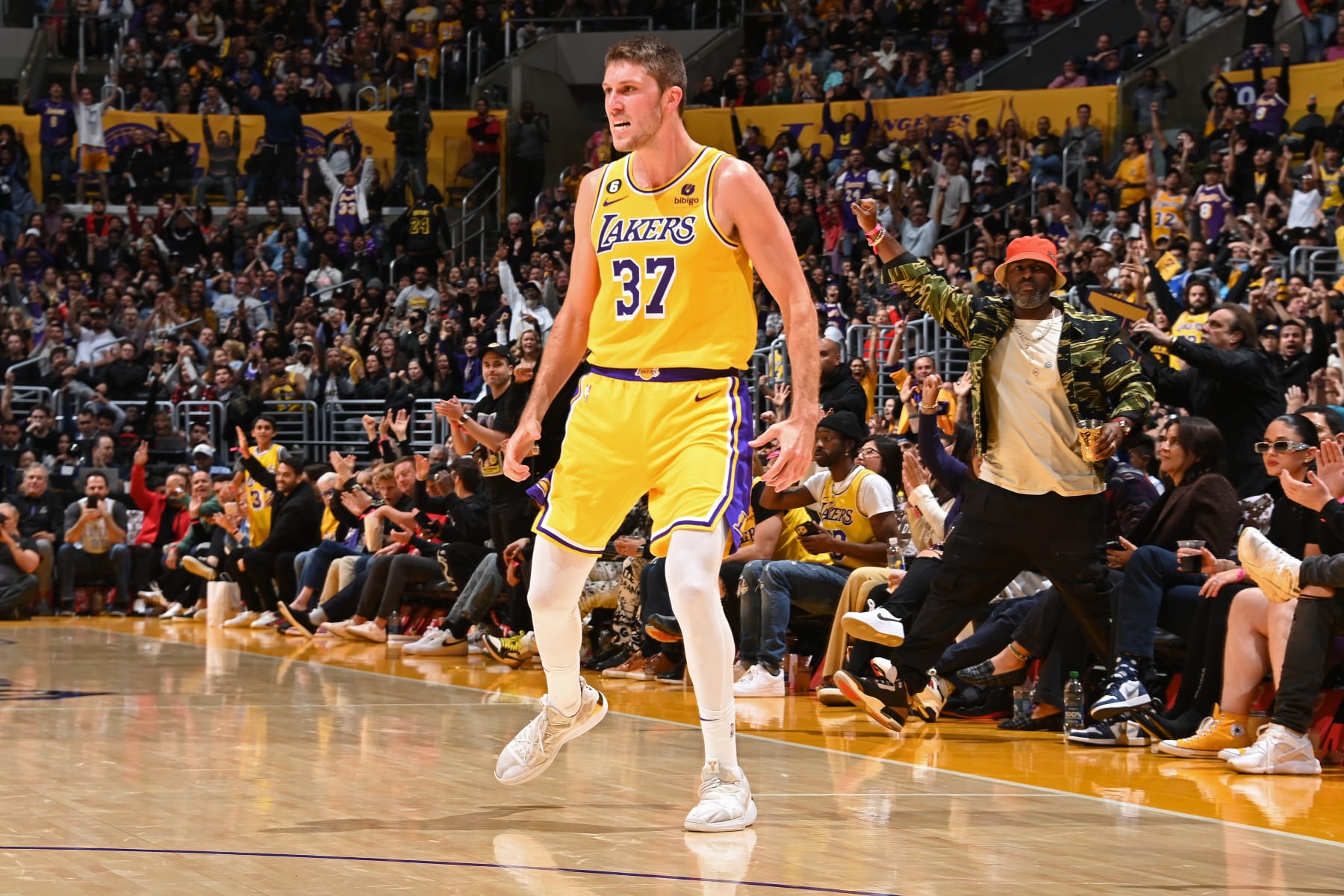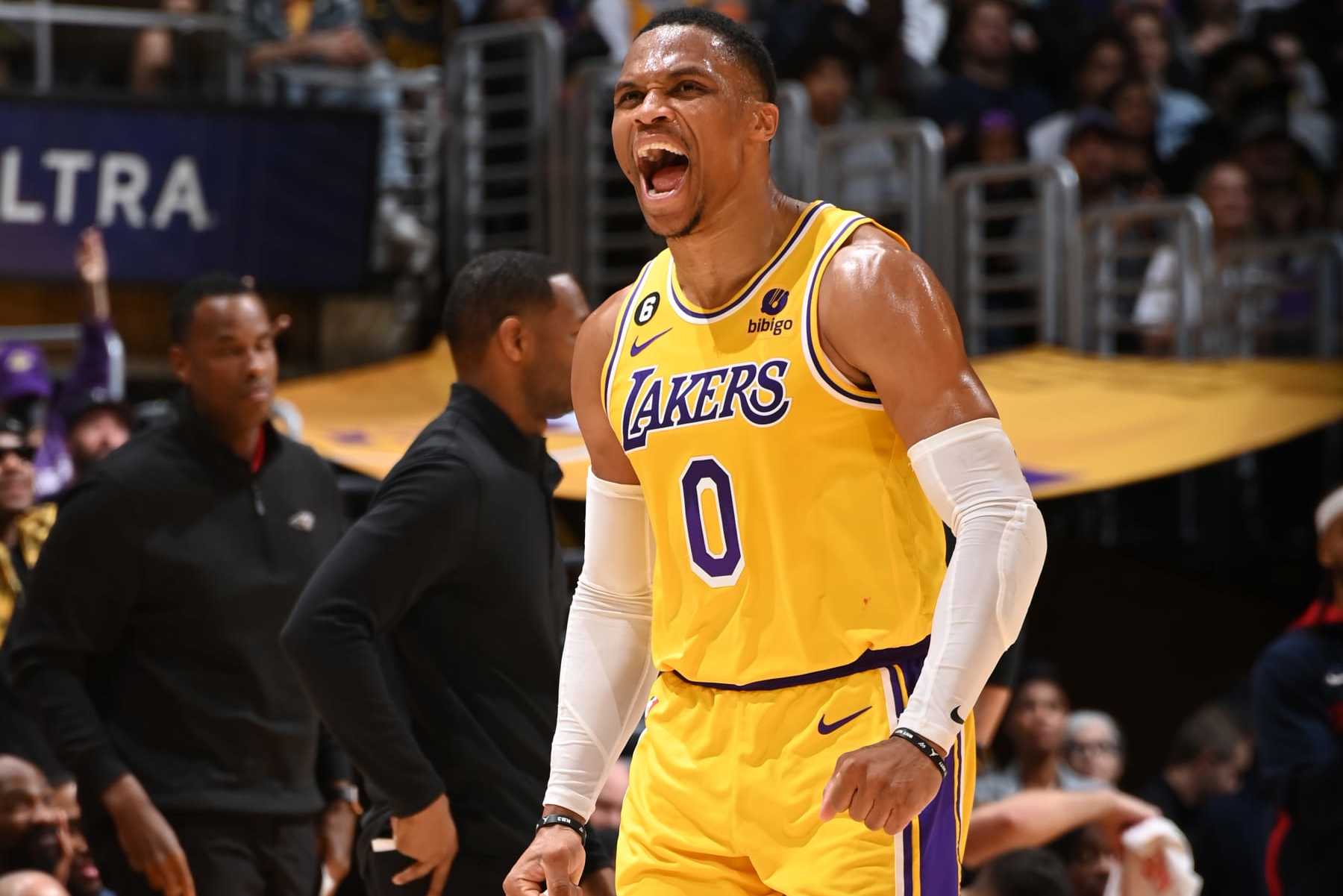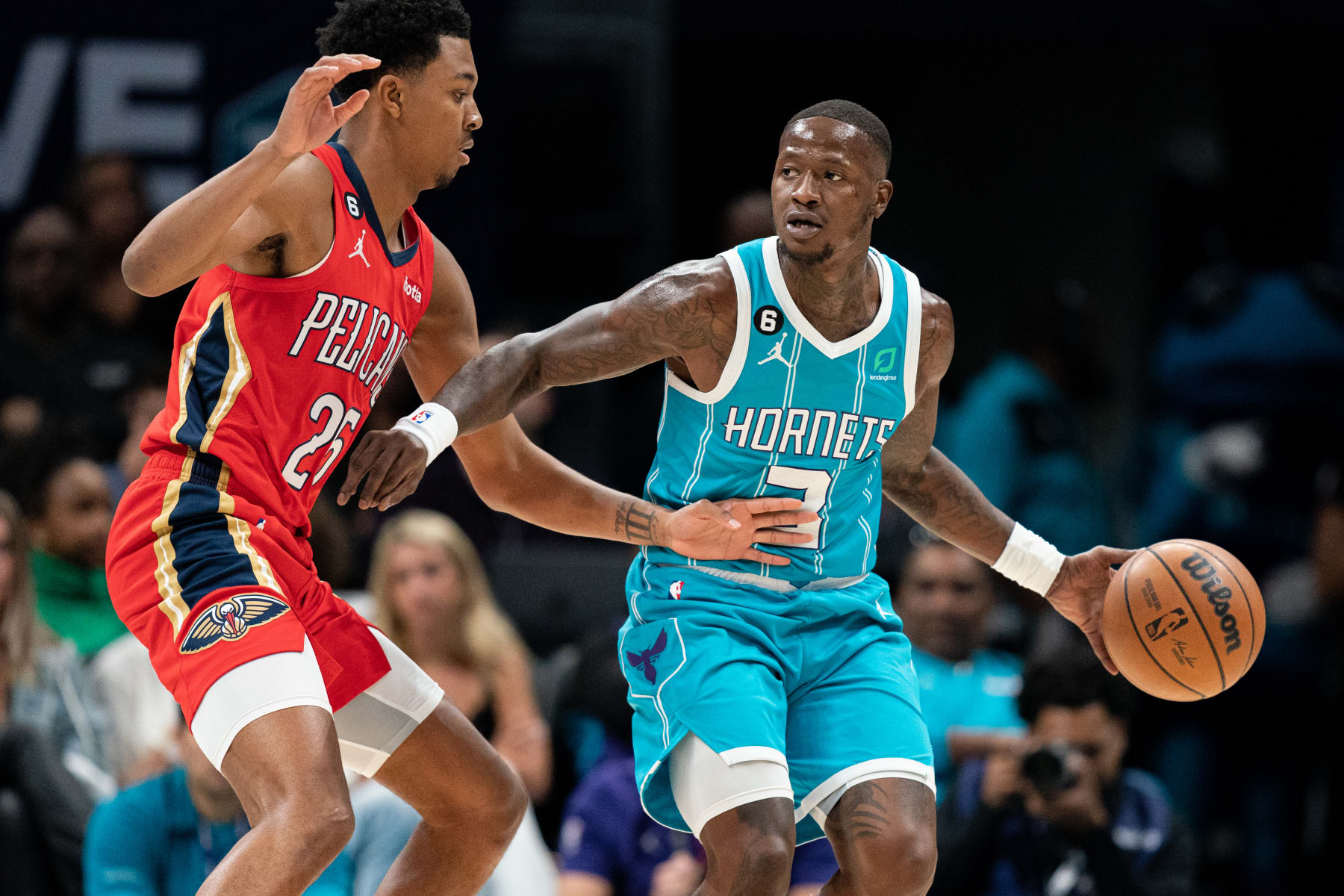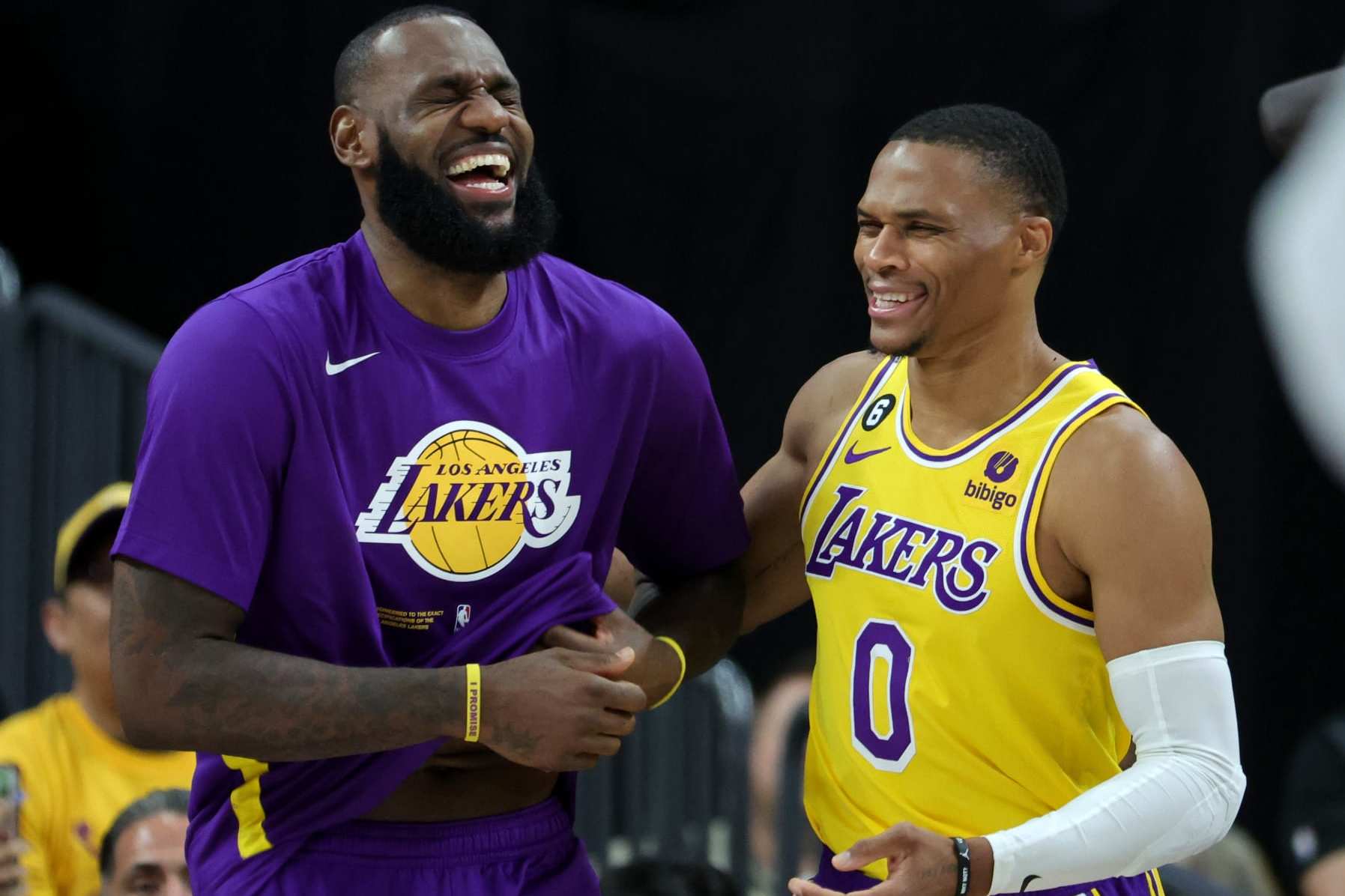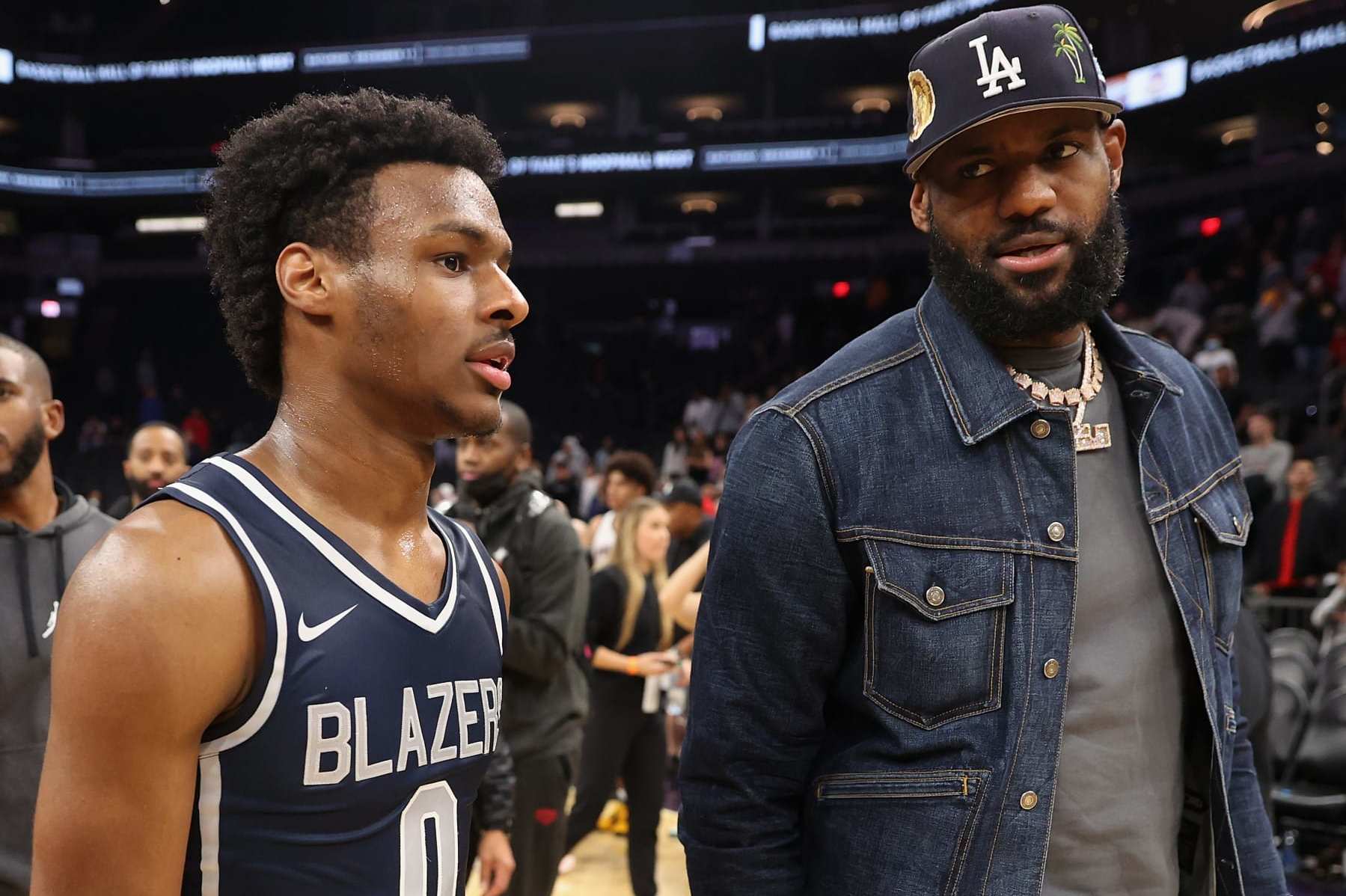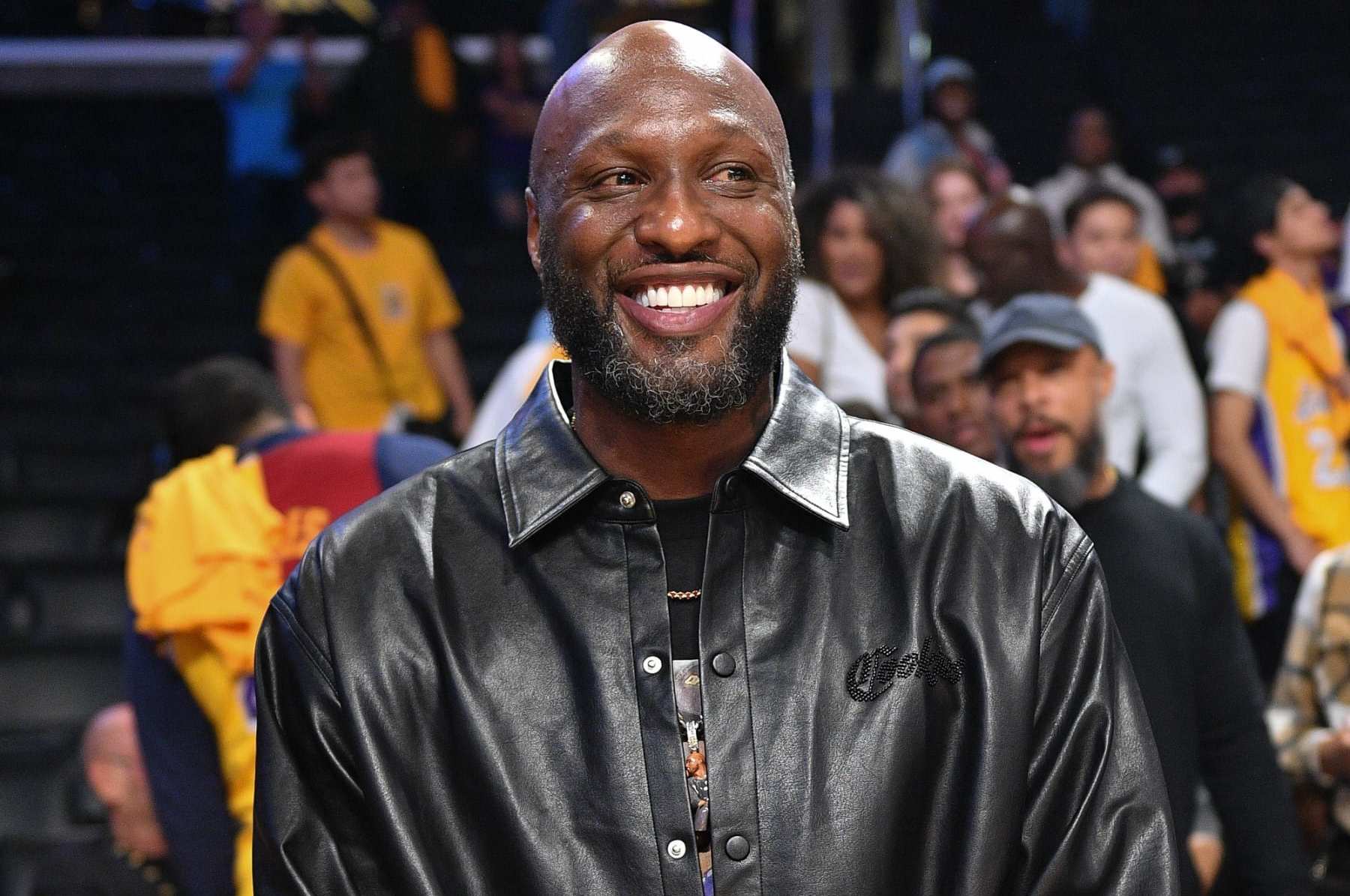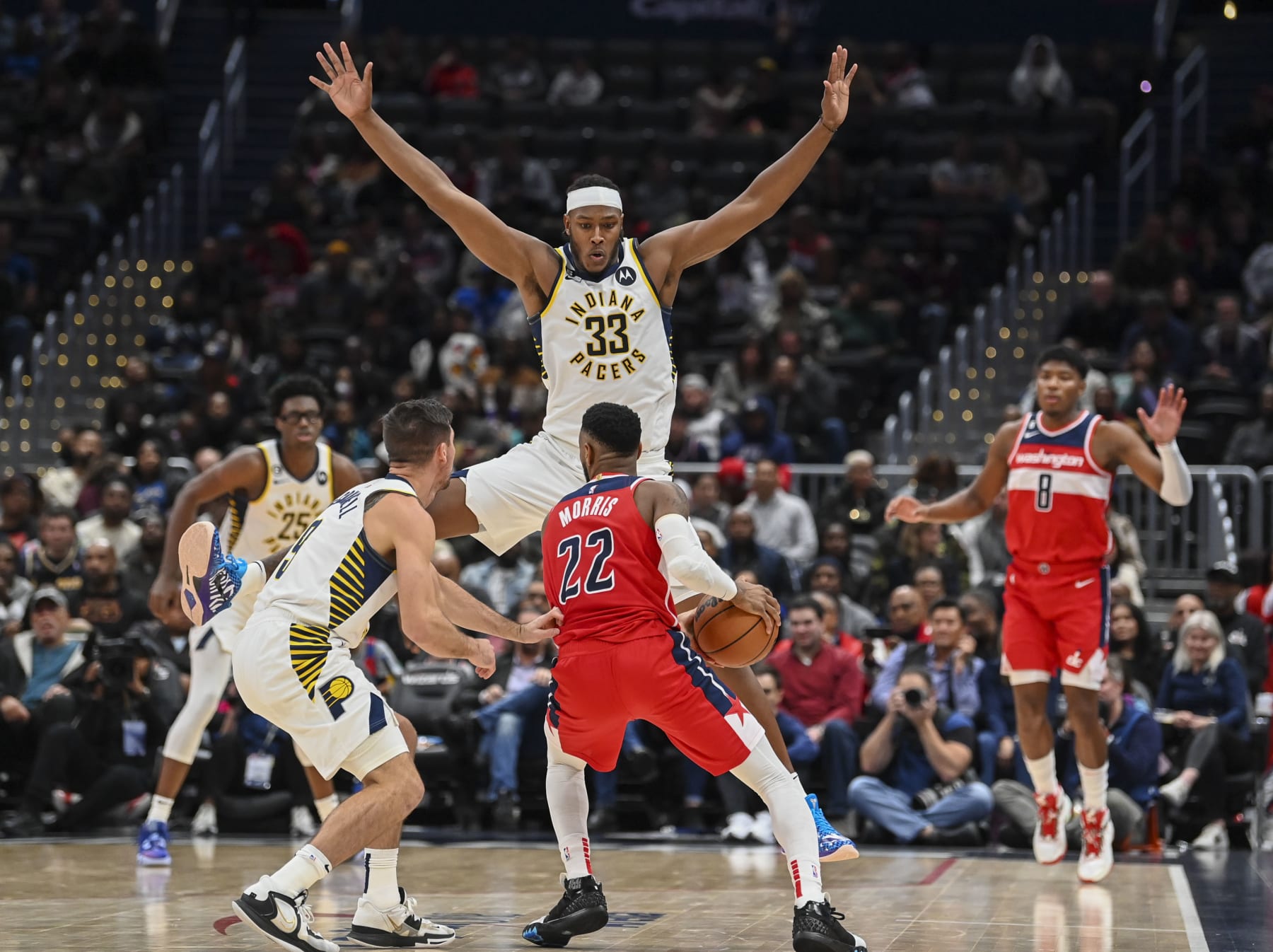Did Moving Russell Westbrook to the Bench Save the Los Angeles Lakers' Season?
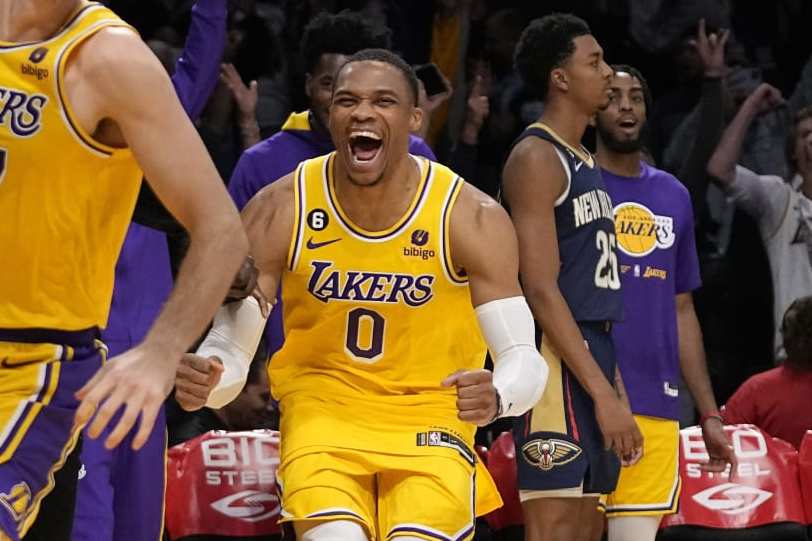
Perhaps by now, we should know better than to wonder whether any one move or tweak can reinvent the 2022-23 Los Angeles Lakers. And yet, just three games into the experiment, we have to ask:
Did moving Russell Westbrook potentially save this team's season?
Entering Friday night's tilt against the Utah Jazz, nothing is for certain. And no one game is an end-all benchmark, not even versus the awesomely random and plucky Jazz. But posing this question at all is a breath of fresh air for an organization that has spent the past year-and-change choking on the thick, acidic smog of its own derailing decisions.
The story of these Lakers cannot be told through a singular plot line. Westbrook was and remains an easy focus—a low-hanging scapegoat. But this team was and remains so much more than his awkward fit and mammoth salary and the obstacles imposed by both.
Really, that's the problem.
Through all the early-season losses and trade speculation, missed threes and body-language decoding, injury concerns and frustration with the front office, the most damning thing about these Lakers was that they felt unsalvageable. No Westbrook trade or tweak, however improbably impactful, could feasibly rescue them. They were—and are—an issue of compounding variables.
Still, bringing Westbrook off the bench always loomed as a welcomed stopgap, an adjustment the Lakers could make without overhauling their roster or future draft equity. They finally went that route after Westbrook missed a game with a hamstring injury.
And right now, the demotion looks like a promotion for everyone involved.
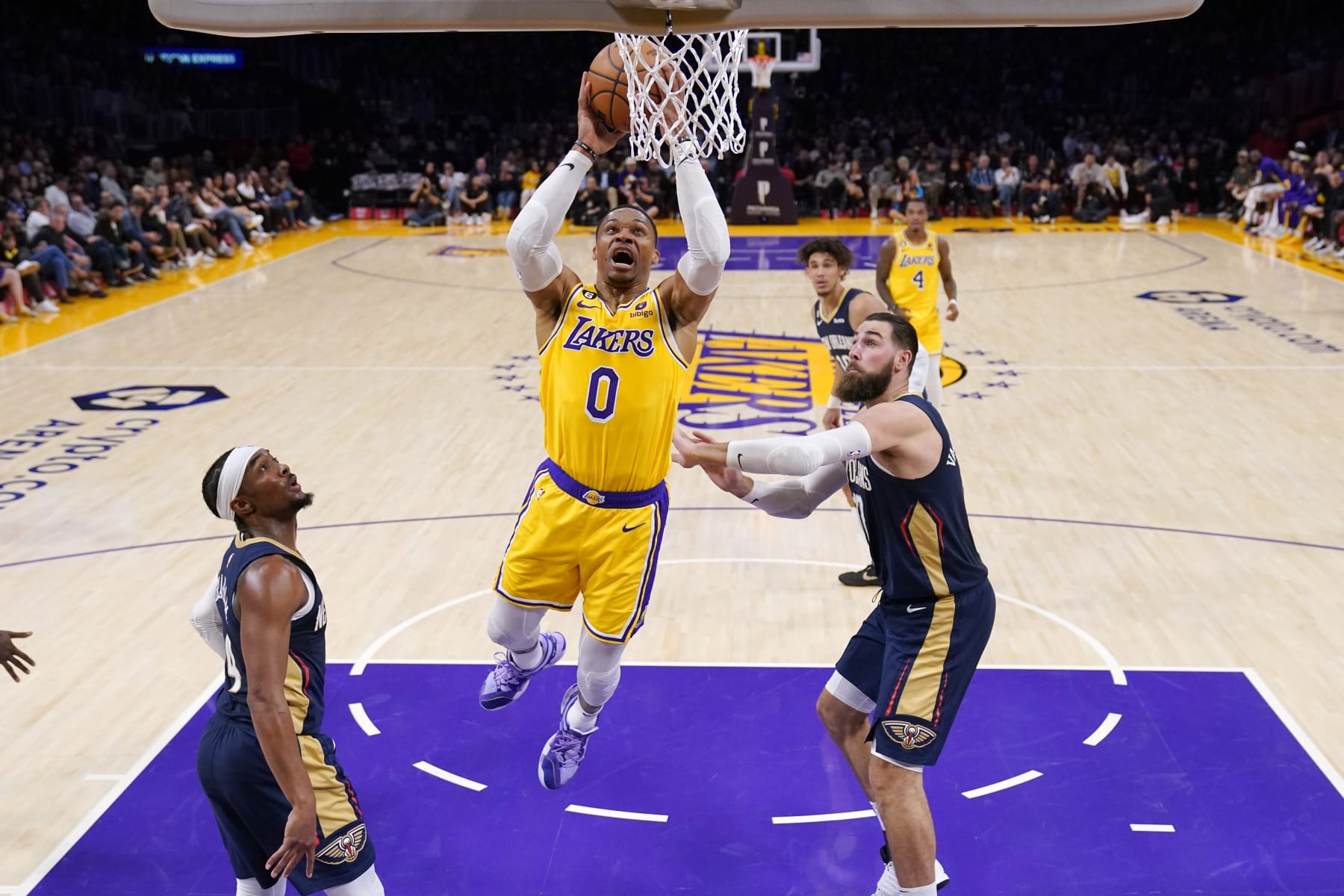
Through his first three games of the season, as a starter, Westbrook averaged 10.3 points and 4.3 assists while downing 38.5 percent of his twos (10-of-26) and 8.3 percent of his threes (1-of-12). The Lakers were outscored by a total of 16 in his 86 minutes, and the starting unit was a minus-8.8 points per 100 possessions, with an offensive rating of 75.
In the three games Westbrook has come off the bench, he's averaging 16.3 points and 6.7 assists while converting 51.9 percent of his twos (14-of-27) and 33.3 percent of his threes (4-of-12). The Lakers, meanwhile, have outscored opponents by a total of 22 during his 90 minutes, the second-best mark on the team.
Small-sample theatre at its finest? Maybe. And it's not all good.
Anthony Davis missed Los Angeles' Oct. 28 loss to the Minnesota Timberwolves, but the new preferred starting five with Troy Brown Jr. has been outscored by six points in 17 minutes, missed all of its threes (0-of-5) and posted a pedestrian offensive rating (105.3) to go along with a horrific defensive rating (127.8). This could be more small-sample theatre. It's also not great.
Immediately, though, it matters more that the Lakers have potentially found a way of optimizing Westbrook—and, in turn, themselves.
Staggering him from the starting lineup, and most notably LeBron James, irons out a big-time wrinkle. LeBron knows how to utilize himself away from the ball. That has never once been Westbrook's forte. And displacing LeBron from the ball in favor of Russ never made sense, because any solution that rests on marginalizing a GOAT candidate still playing at a star level isn't a solution at all.
Increasing Westbrook's independence is the smarter course. It allows him to operate in his natural state, on the ball, and have more of an influence over the offense.
His usage off the bench already bears this out. He has gone from averaging 26.4 frontcourt touches per 36 minutes to 31.6. His drives per 36 minutes are similarly on the rise, jumping from 13.8 all the way to 17.6.
Though Westbrook's finishing inside remains prone to misadventure, he has traded out in-between twos for more point-blank looks. Around 66.7 percent of his looks are coming inside the restricted area compared to 42.1 before, and he's taken just one total non-RA shot in the paint over his past 90 minutes.
Three games aren't necessarily telltale. In this case, they're also gargantuan. That's the point we've reached with the Lakers—and with Russ, specifically. Turning in three consecutive rock-solid performances is refreshing and, frankly, flat-out huge.
This is not to say the Lakers are out of the woods. They most certainly are not.
Moving Westbrook to the bench has amounted to roughly three fewer minutes per game that he spends alongside LeBron (17.5 down from 20.4). That is not a whole lot.
More than that, the Lakers are still trying to wrap their head around a torrent of other problems.
The offense as a whole is 24th in points scored per possession during this stretch and shooting just 33.7 percent from deep outside garbage time (17th). Both qualify as improvements, but progressions to not-quite-the-middle are not achievements worth lionizing.
Kendrick Nunn already appears to be out of the rotation. Anthony Davis is playing through a back injury that's visibly affecting his movements for possessions at a time. This team is awfully dependent on Lonnie Walker IV, and on LeBron logging over 36 minutes per game. Both are, at best, uncomfortable realities.
Los Angeles' Westbrook conundrum hasn't suddenly dissipated, either. Head coach Darvin Ham still rolled with Patrick Beverley over him to close their Nov. 2 win over the New Orleans Pelicans. And the Lakers still needed end-of-regulation heroics from—*checks notes*—Matt Ryan to force overtime in that victory.
More tough calls like this await, and they figure to be a constant. And the Lakers' larger-scale fit issues aren't suddenly dunzo.
The three-star minutes have been fruitful over this brief stretch, as has the LeBron-Russ dynamic. But the continuance of this trend rests on Brown and Ryan and Walker and Austin Reaves collectively generating enough space to buoy the offensive inklings of the stars. That's not a no-risk proposition.
This raises the overarching question: How good is the most optimized version of these Lakers anyway?
"We can't be sure yet" is the charitable, albeit not unfair, answer. "Not good enough to hang with the West's elite" is the more honest, equally fair response.
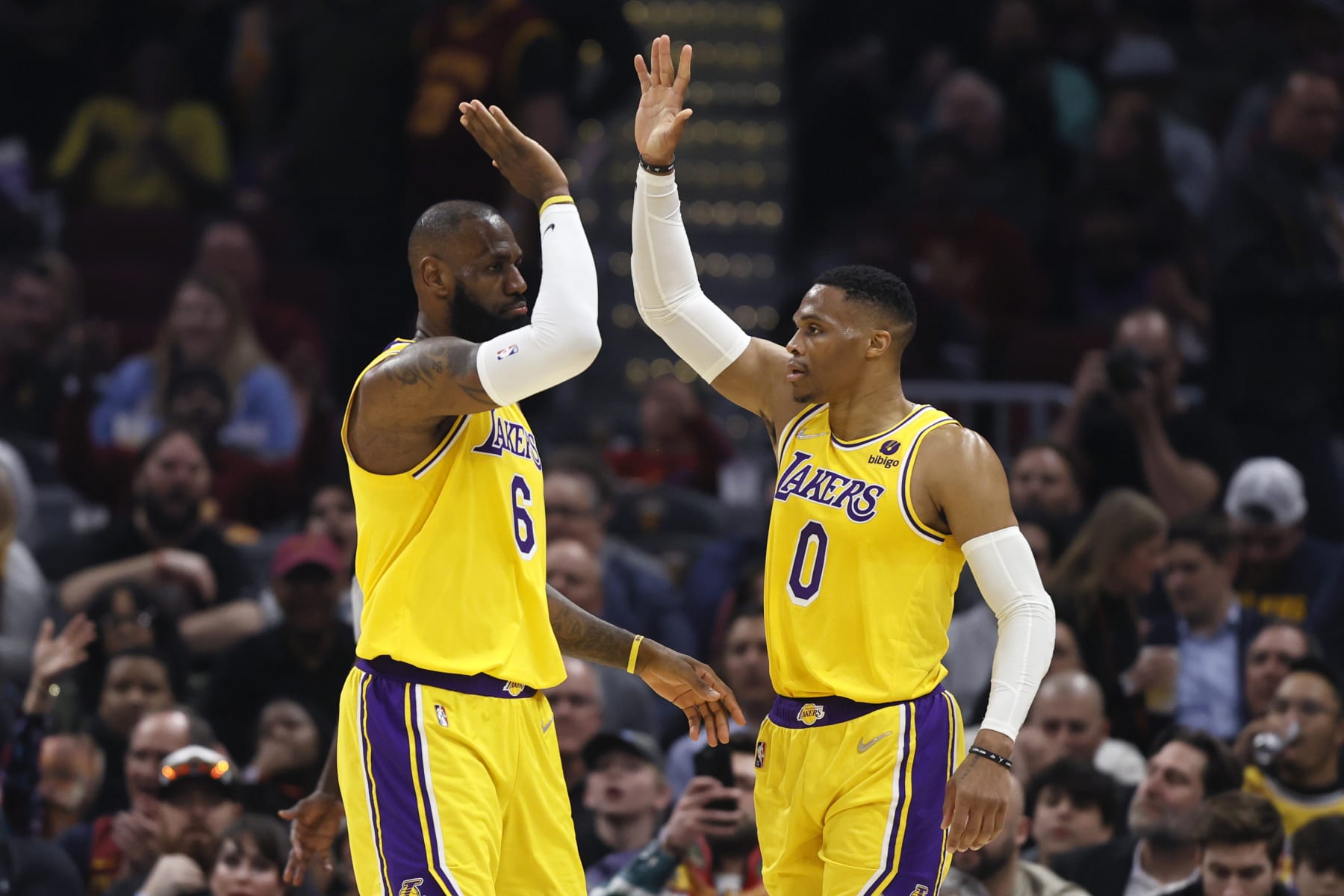
All of this invariably begets another, identically fraught question: Just what are the Lakers working toward if this is, in act, a quasi-Russell Westbrook revival?
His salary is so large ($47.1 million), his fit so complicatedly specific, that better play doesn't make him more tradeable. Even if it does, what does that mean?
That the Lakers can get a better return for his contract? Unlikely. That they don't have to bankrupt their entire draft-pick fund to move him? OK, cool.
Cheapening the opportunity cost of what it takes to trade him doesn't magically change the scenarios available to them. Nor does it protect them against better offers for anyone they're circling. Plenty of other teams can send out first-rounders that convey sooner than five drafts away.
Thinking this way is ultimately counterintuitive. Bringing Westbrook off the bench has not fixed the Lakers from within or made it easier to reinvent themselves from the outside.
What it has done, though, is buy them time and possibility—a chance to self-explore and wait out issues inside and beyond their control without necessarily torpedoing what's left of their season.
And that's far more hope than these Lakers had before.
Unless otherwise noted, stats courtesy of NBA.com, Basketball Reference, Stathead or Cleaning the Glass and accurate entering Friday's games. Salary information via Spotrac.
Dan Favale covers the NBA for Bleacher Report. Follow him on Twitter (@danfavale), and subscribe to the Hardwood Knocks podcast, co-hosted by Bleacher Report's Grant Hughes.

